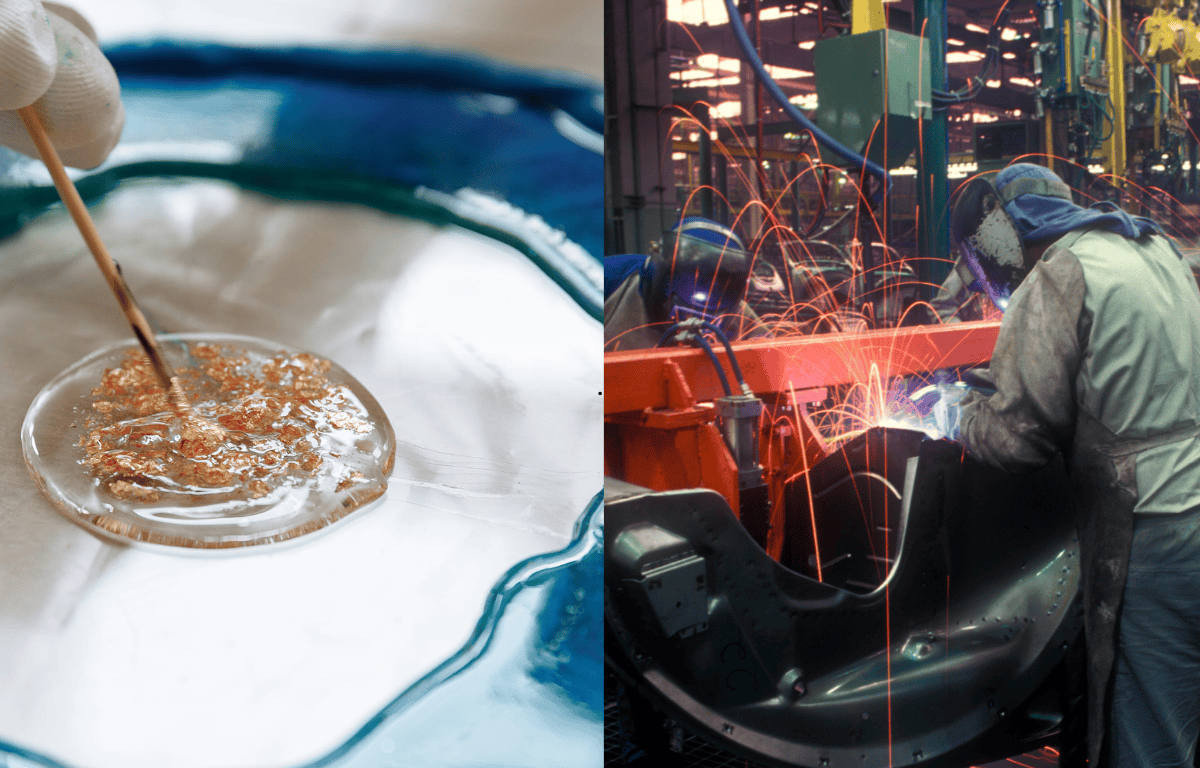Resins are versatile materials that touch nearly every aspect of modern life. From the jewelry you wear to the car you drive, resins play a hidden yet vital role. But what exactly are these substances, and how do they work? This guide dives into the fascinating world of resins, exploring their everyday uses, industrial applications, and even eco-friendly innovations. Let’s get started!
What Are Resins?
Resins are sticky, organic compounds that harden into durable solids. They come in two main types: natural and synthetic. Natural resins, like tree sap, have been used for centuries in varnishes and adhesives. Synthetic resins, such as epoxy and polyester, are lab-made and dominate modern industries.
These materials excel at bonding, insulating, and resisting heat or chemicals. Their adaptability makes them ideal for countless tasks, from sealing artwork to building airplanes. Next, let’s explore how resins show up in daily life.
Everyday Uses of Resins
Resins are everywhere! Crafters use epoxy resin to create glossy coasters, jewelry, and tabletops. Its clear finish protects surfaces while adding a professional shine. UV resin, which cures under sunlight, is perfect for quick DIY projects like phone cases or keychains.
In homes, resins seal countertops and floors. They’re also in adhesives for fixing broken items. Even your favorite perfume likely uses resin-based fixatives to make scents last longer.
For artists, acrylic resin preserves paintings and sculptures. Dentists even use medical-grade resins for fillings and crowns. Clearly, resins make daily life smoother and more creative!
Industrial Applications of Resins
Industries rely heavily on resins for strength and efficiency. Automotive manufacturers use polyurethane resin in dashboards, seats, and bumpers. It’s lightweight yet tough, improving fuel efficiency.
Aerospace engineers trust epoxy resins to build planes and rockets. These resins withstand extreme temperatures and reduce weight, crucial for space travel. Construction teams mix resins into coatings to protect bridges from rust or concrete from cracking.
Fiberglass, made with polyester resin, forms boat hulls and swimming pools. Even wind turbine blades use resins to stay sturdy yet flexible. Without resins, modern infrastructure would crumble!
Resins in Technology and Electronics
Your gadgets owe a lot to resins! Circuit boards rely on epoxy resins to insulate wires and components. These resins prevent overheating and short circuits.
Silicone resins coat electronics to resist water and dust. Smartphones, laptops, and wearables stay safe thanks to this invisible shield. 3D printing also uses liquid resins to craft detailed prototypes or custom parts.
In renewable energy, resins help solar panels endure harsh weather. They encapsulate cells, ensuring decades of efficient power generation. Tech advancements simply wouldn’t stick without resins!
Environmental Impact and Sustainable Resins
Traditional resins often harm the environment. Petroleum-based options take centuries to decompose. Thankfully, eco-friendly alternatives are rising.
Bio-resins, made from plants like corn or soy, break down naturally. Companies now use them in packaging and disposable products. Recycled resins repurpose plastic waste into new items, reducing landfill growth.
Researchers are even developing “green” epoxy resins from algae. While challenges remain, sustainable resins promise a cleaner future.
Choosing the Right Resin for Your Project
Picking the best resin depends on your needs. For crafts, epoxy offers clarity and ease. For outdoor projects, polyester resin resists UV damage.
Check curing time, toxicity, and temperature resistance. Always wear gloves and work in ventilated areas.
Final Thoughts
Resins are silent heroes in both homes and factories. They fuel creativity, strengthen industries, and push technology forward. As sustainable options grow, resins will keep shaping our world responsibly. Ready to try a resin project? The possibilities are endless!
COMPANY INFO
Website: www.crestresins.com
Phone: +91 9879233188
Email: enquiry@crestresins.com
Address: 605/A, 6th Floor, Tower D, Times Square Grand Office, Sindhubhavan Marg, Near Taj Hotel, Ahmedabad, Gujarat – 380059

